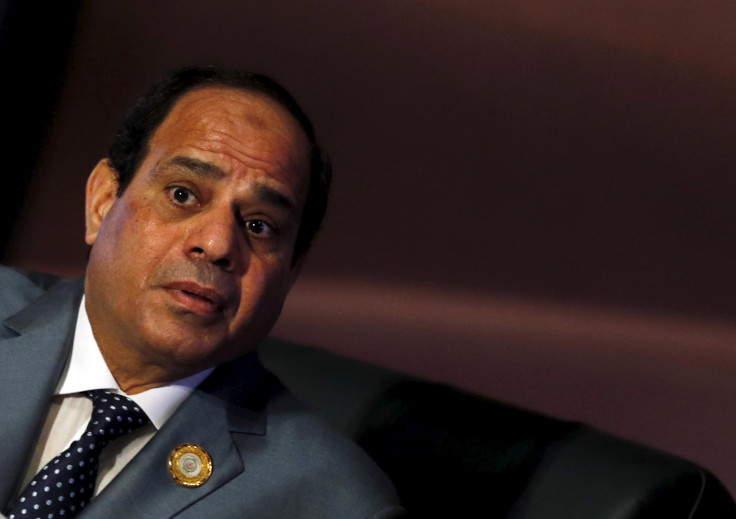Obama Lifts 2013 Arms Export Ban On Egypt, Resumes $1.3B Military Funding

U.S. President Barack Obama on Tuesday ended an almost two-year ban on the supply of weapons to Egypt, citing the need to ensure that Egypt is “better positioned to address the shared challenges to U.S. and Egyptian interests in an unstable region.”
The ban, which was imposed in 2013 after the Egyptian army overthrew the government, was relayed by a call Obama placed to Egyptian President Abdel Fattah al-Sisi. It would allow the U.S. to ship up to 12 F-16 aircraft, 20 Harpoon missiles and 125 M-1 Abrams tank upgrades to Egypt’s government, the White House said in a statement.
The move comes as Egypt announced the creation of a joint military force that represented the Arab League regional group. The force, which was announced at an Arab League summit over the weekend, is tasked with combating the “challenges” in the region as Yemen descends into civil war with Iran-backed Houthi rebels and the Islamic State group consolidates power across the Middle East.
"Assuming the great responsibility imposed by the great challenges facing our Arab nation and threatening its capabilities, the Arab leaders had decided to agree on the principle of a joint Arab military force," Sisi said on Tuesday, according to Al Jazeera.
When the White House halted the arms shipments to Egypt, it demanded that new regime make “credible progress” toward a fair and democratic society before the supplies are resumed.
While allegations of human rights abuses and political suppression have continued under Sisi’s rule, Obama also promised to resume $1.3 billion military funding provided annually to Egypt, and provide additional security aid beginning in fiscal year 2018. He did, however, criticize Sisi’s record on human rights and its imprisonment of nonviolent activists.
The move comes at a time when U.S. arms exports across the world are on the rise. According to the Stockholm International Peace Research Institute (SIPRI), exports from major American arms manufacturers grew by 23 percent between 2005–2009 and 2010–14.
“The USA has long seen arms exports as a major foreign policy and security tool, but in recent years exports are increasingly needed to help the US arms industry maintain production levels at a time of decreasing US military expenditure,” Aude Fleurant, Director of the SIPRI Arms and Military Expenditure Programme, said in a statement.
Administration officials, speaking anonymously, told the New York Times that Obama's move was not directly related to the current instability in the Middle East affecting countries such as Yemen, Libya and Syria, or the possible nuclear deal with Iran. However, the growing threat posed by militants in the region, particularly attacks in the Sinai Peninsula, influenced the timing of the move, the officials reportedly said.
© Copyright IBTimes 2025. All rights reserved.





















